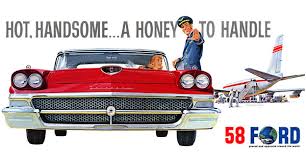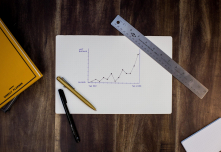
by Amy Corr
As states begins to lift lockdown rules and slowly reopen, glimmers of a pre-COVID-19 life emerge. Our next normal will change everything we do, from getting a haircut, eating at a restaurant, going to a doctor, and working out.
Even advertising will look different. Big budget ad campaigns are shelved for the foreseeable future and messaging will communicate the importance of family and togetherness, safely.
The new normal of advertising will be COVID-19 appropriate while showcasing new safety measures, buying options and available vehicles.
Dealer News Today spoke with automotive and advertising agency executives about the future of automotive advertising during a pandemic.
According to Christian Gani, Managing Director, Boulder, at Match Marketing Group, the new normal has yet to be cemented.
He noted that Hyundai was the first brand to pivot to COVID-19-related advertising with its Hyundai Assurance Program and “like 6-year-old kids at a soccer game — the ball goes one place and everyone [other car brands] follows.”
“There will be a much slower story arc to come to normalcy and it won’t be until next year. I don’t believe we go back to the sameness we had before. National campaigns will become more cerebral and less tactical.”
Gani and his agency are currently pitching an automotive account and the brand asked them about the future of experiential-based marketing.
“What do we replace it with,” said Gani. “What will consumers be willing to do? How do we market to consumers in the new normal?”
“Going back to normal will never be productive,” concluded Gani. “The winner will be what brand is the first there. Challenges that existed pre-COVID-19 are still going to be there.”
Since COVID-19 will be top of mind indefinitely, Margot Bogue, Senior Vice President, Director of Brand Planning at Cramer-Krasselt on the Porsche business, believes that dealerships and brands no longer need to mention COVID-19 in creative.
“Business as usual is not what it used to be. We’re adapting to a new reality. Messaging should not be centered on COVID-19 but could be COVID-19 appropriate,” she said.
Suitable COVID-19 advertising will be low budget, won’t show large gatherings since that’s not COVID-19 appropriate and focus on new safety standards when purchasing a vehicle or bringing one in for service.
“We’re getting really creative in production,” continued Bogue. “We’re shooting with people we know and trust. The crew is more limited, and drones are used. There’s a lack of big budget advertising. Agencies must be creative and smart with what they are doing.”
This sounds like a job for MacGyver.
New advertising from Hyundai, for example, showcases how to buy a car online and safety requirements used inside dealerships and service departments to ensure that customers feel that it’s safe to visit.
“As things started to open up, we transitioned our messaging to reflect the experience customers will have purchasing our vehicles,” said Angela Zepeda, Chief Marketing Officer at Hyundai. “We have adapted to the new environment by offering online buying options and introduced Hyundai Clean Assurance, new suggested guidelines for dealerships and service facility visits to help safeguard everyone’s health.”
Guidelines include social distancing measures, dealership training, and an extensive cleaning process. Hyundai creative will eventually transition to be more product-focused; instilling a high level of comfort in customers remains the priority.
“When coronavirus first hit, we were closely watching events transpire in our home market of South Korea and we learned lessons on how to prepare,” continued Zepeda. “Hyundai’s direction change decision was made by our marketing team and other key executives.”
Mike Brau, Vice President, Group Brand Director of INNOCEAN USA, Hyundai’s agency of record, said the brand is returning to SUV advertising at Tier 1 and sales events at Tier 2 with creative developed from existing assets. The agency has also done very small shoots with a very limited crew and strict safety protocols to debut after July.
Not only has the pandemic forced every industry to think outside the box with how and where they message consumers, it’s even highlighted new business strategies like contactless drop-off and pickup services. Options that were once available only to luxury consumers are now de rigueur in this current climate and should stay at the forefront.
Bogue believes this personalized service and attention to detail is more important than ever.
“Dealerships providing contactless drop-off services will win,” said Bogue. “It’s not just about being clean. Is there a way to bridge this gap and not lose spontaneous services?”
Gani concurs that touchless delivery, along with pick up and drop off delivery test drives, will help expand the level of personal service marketing offered to consumers.
“With COVID-19, consumer behavior shifted and pivoted,” said Gani. “Advertising will lead the discussion. If a brand can bring you the product, why go out for it? It’s an old message and a new expectation. Advertising and marketing are finding out where the expectation line is and going just beyond it.”
With ad campaigns scrapped following the cancellation of March Madness, among other sporting events, many traditional media investments were lowered for the short term as digital content increased.
Hyundai lowered its media investment for the short-term with plans to reinvest those dollars post-COVID-19.
The automotive manufacturer did remain active on social media, launching the “Great Indoors” in May. The Instagram content series followed a toy family and their toy Hyundai Santa Fe as they explored the mini wonders of life indoors.
Hyundai also partnered with Tastemade to create The Un-Adventurers.
The four-part series debuted online in June and follows real people who leave their home states for the first time for an epic road trip.
A new appreciation of cars has emerged as the world lives through COVID-19. Being stuck inside your house for weeks and months on end had turned the vehicle that typically brought us from point A to point B into a safe sanctuary.
“Cars create a new mini fortress,” said Bogue. “A new comfort bubble. Road trips will increase, as will camper rentals and going to drive-in movie theaters. Cars are the new escape room.”












